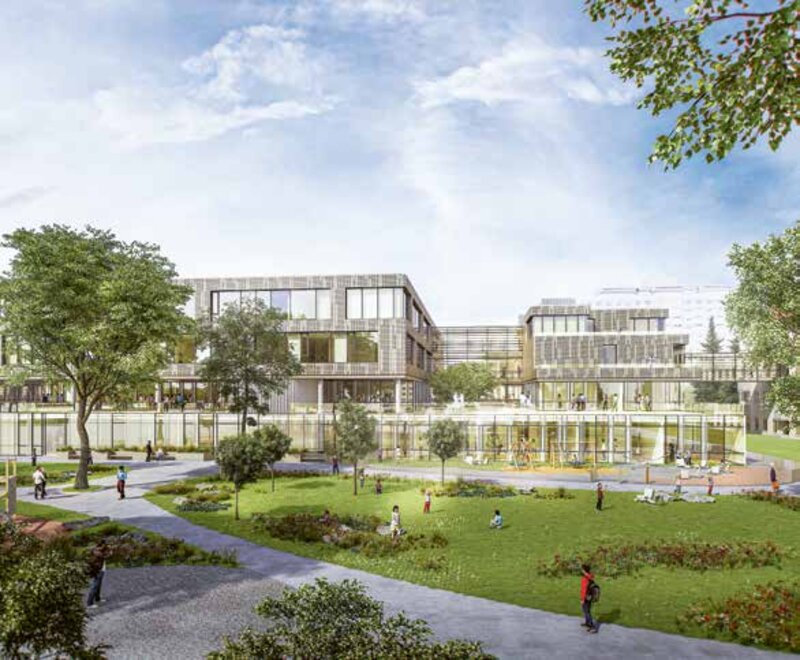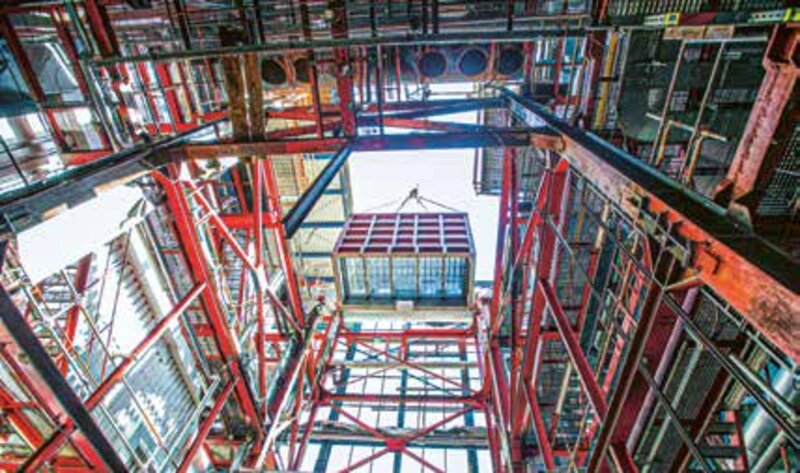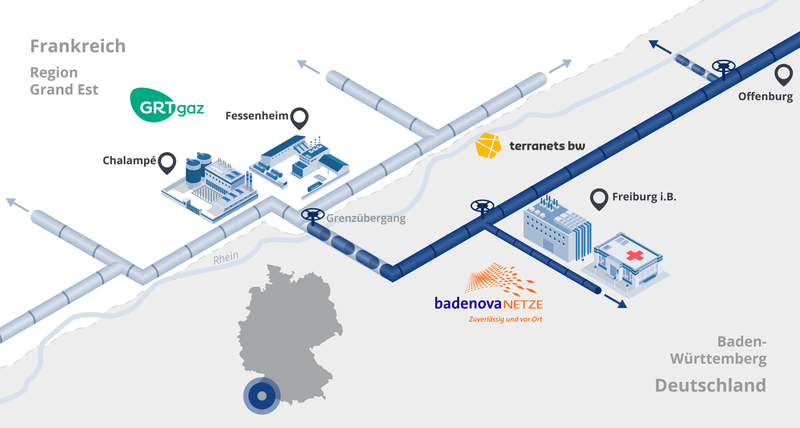Technology
Full steam ahead towards a green future
Generating and using electricity, cooling and heating in the most climate-friendly way possible: Numerous employees at the University Medical Center Freiburg use their expertise and good ideas to achieve this. The teams from Division 5 - Technology in particular are looking for new potential savings and adapting systems in over 160 buildings, devices and processes.
Power from the roof
The photovoltaic systems at the Bad Krozingen site, on the Institute for Infection Prevention and Hospital Hygiene and the staff canteen together supply an average of 360 megawatt hours of electricity per year, which reduces CO2 emissions by around 134 tons annually. A system is also planned for the new building of the Center for Pediatric and Adolescent Medicine. An ongoing study is examining which other roofs are suitable.
On course for high performance
The in-house combined heat and power plant supplies the University Medical Center in Freiburg with electricity, cooling and heating as well as the university buildings and other facilities with district heating - and is constantly becoming more efficient: The use of engine and exhaust gas heat has saved around 5,000 tonsof CO2 annually since 2018. The replacement of the oldest boiler also helped to reduce emissions in 2020. In addition to recovering flue gas heat, an SCR catalytic converter system was installed, which has prevented more than 10,000 kilograms of nitrogen oxide emissions within two years.
Green heat thanks to hydrogen
As part of a feasibility study, the University Hospital is currently examining what a switch from natural gas to hydrogen could look like. Regional energy suppliers are planning to connect the Upper Rhine region to the French hydrogen infrastructure and are testing the suitability of existing gas pipelines. If the results are positive, the University Hospital could be one of the potential customers and use green hydrogen to make its electricity and heat supply CO2-neutral in future.
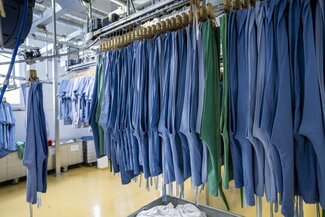
Dry, smooth and climate-friendly
More efficient, more environmentally friendly and more economical: this is how the energy supply in the laundry at Freiburg University Hospital should be. In a cross-departmental project, the steam pressure in the laundry was successfully reduced from 10 bar to 4 bar. This significantly reduced energy consumption, which led to a reduction in operating costs and a noticeable improvement in the CO2 balance: A total of 712 tons of CO2 emissions are saved every year. This corresponds to the annual emissions of 236 average single-family homes. More...
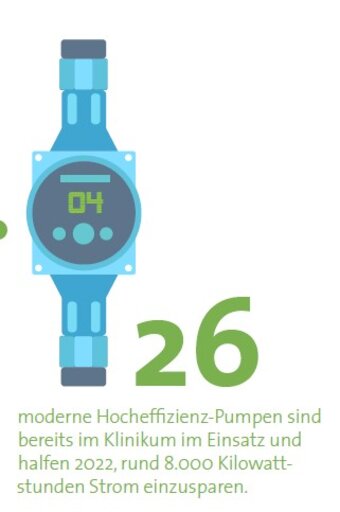
Great pumps
Modern high-efficiency pumps deliver cooling and heating much more effectively than three-phase and circulation pumps. Their replacement is in full swing, with 26 high-efficiency pumps already in use in some heating and cooling registers and heating centers. The replacement saved around 8,000 kilowatt hours of electricity and therefore around 3,000 kilograms of CO2 in 2022.
Every degree counts
A small adjustment makes a big difference: in the Department of Ophthalmology, particularly sensitive samples have been stored at -70 degrees Celsius instead of -80 degrees Celsius since 2022. As a result, the power consumption of the ultra-low temperature freezers has been reduced by 30 percent with the support of the clinic management and without compromising on storage quality.
Clever cooling
Pleasant temperatures even in summer: the Interdisciplinary Tumor Center owes this to the Black Forest groundwater, whose cold cools the concrete ceilings. Temperatures in the administration building are also controlled in a climate-friendly way using concrete core activation. A cold storage tank with a capacity of 1.5 million liters is integrated into the new building of the Centre for Paediatric and Adolescent Medicine; at night, windows open automatically to cool down.
Compact storage
At the Centre for Digitization and Information Technology, the switch to flash storage is helping to save twice over. Thanks to flash storage, data can be compressed more and there is no need for rotating spindles. The result: lower energy consumption and less space required.
- 5,000 tons of CO2 emissions have been saved annually by using engine and exhaust gas heat in the hospital's own combined heat and power plant since 2018
- 26 modern high-efficiency pumps are already in use at the hospital and helped to save around 8,000 kilowatt hours of electricity in 2022
- The photovoltaic systems on the roofs of the University Medical Center Freiburg supply an average of 360 megawatt hours of electricity per year, which reduces CO2 emissions by around 134 tons per year.
- The electricity consumption of the ultra-low temperature freezers in the Department of Ophthalmology, where particularly sensitive samples have been stored at -70 degrees Celsius instead of -80 degrees Celsius since 2022, has been reduced by 30 percent.
University Medical Center Freiburg
Office of Governance, Quality and Sustainability
Breisacher Straße 153
79110 Freiburg
Phone: 0761 270-21851
nachhaltigkeit@uniklinik-freiburg.de


